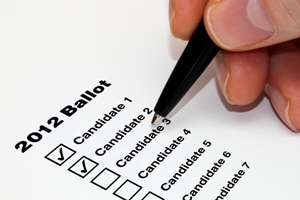Finance reports hint at high profile ballot prop losses
Evan Wyloge//December 7, 2012//[read_meter]
Two well-funded ballot initiatives went down in defeat last month, but as their final finance reports showed, their campaign coffers had perhaps foreshadowed the elections’ outcome. The contributions to Proposition...
















